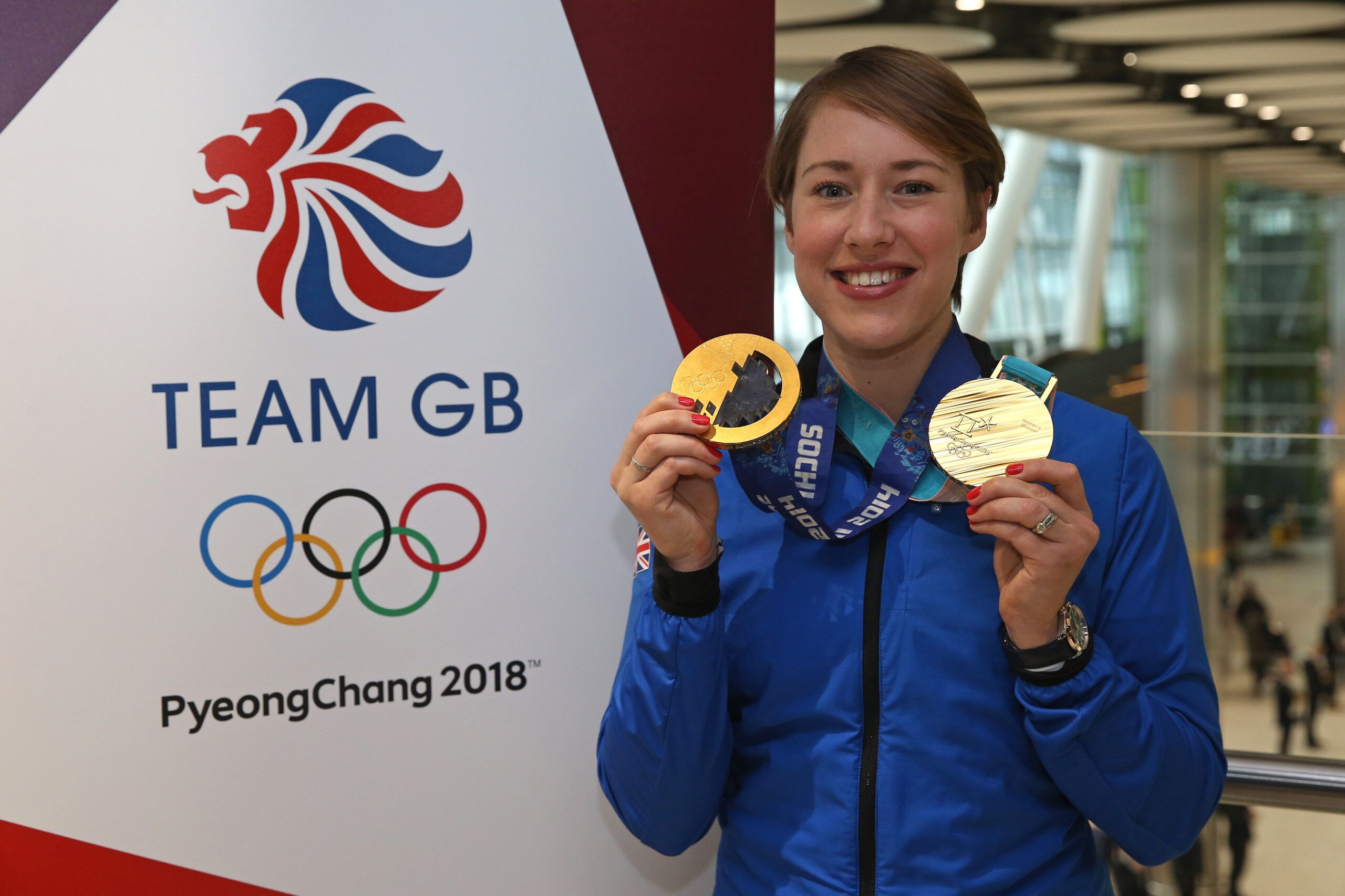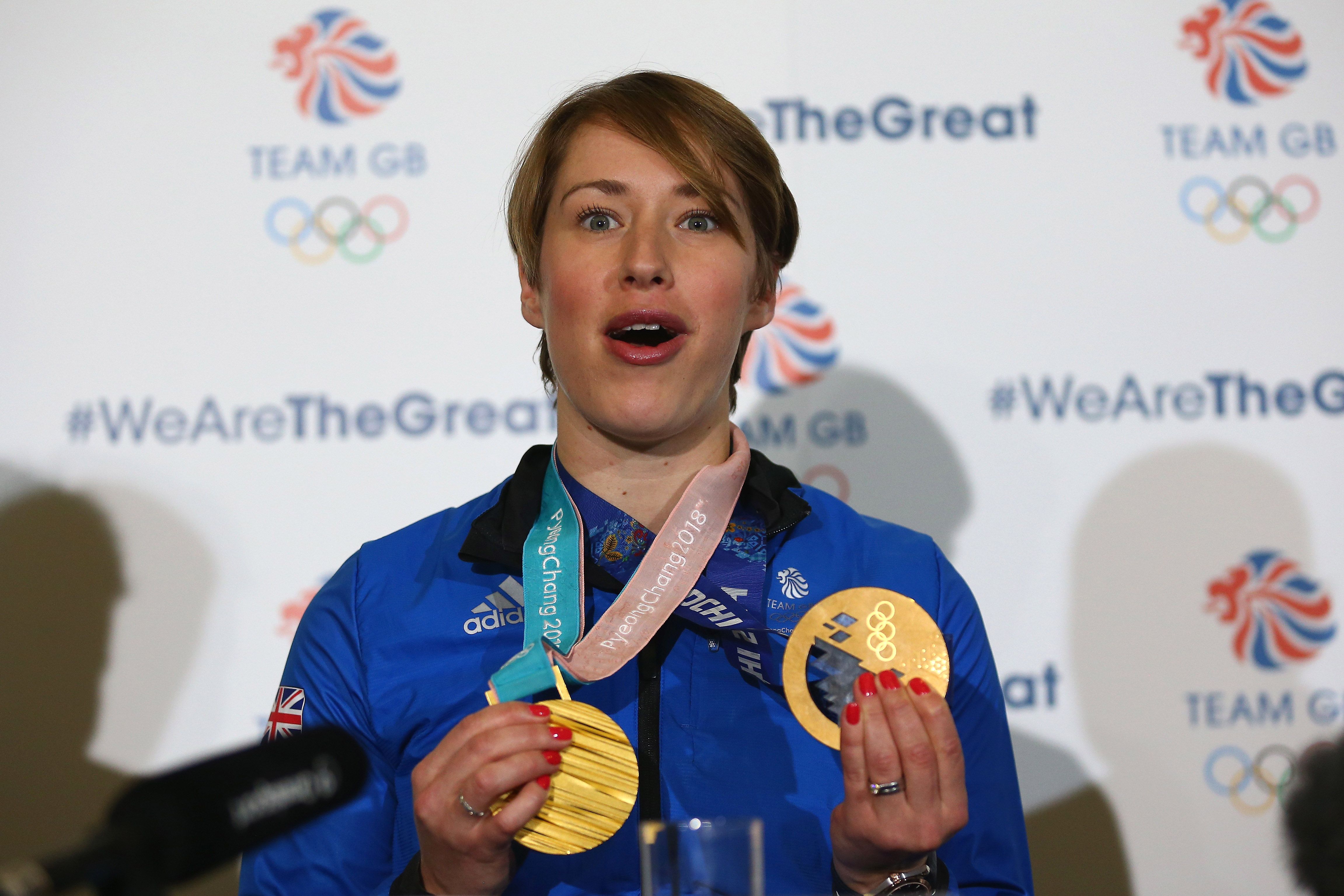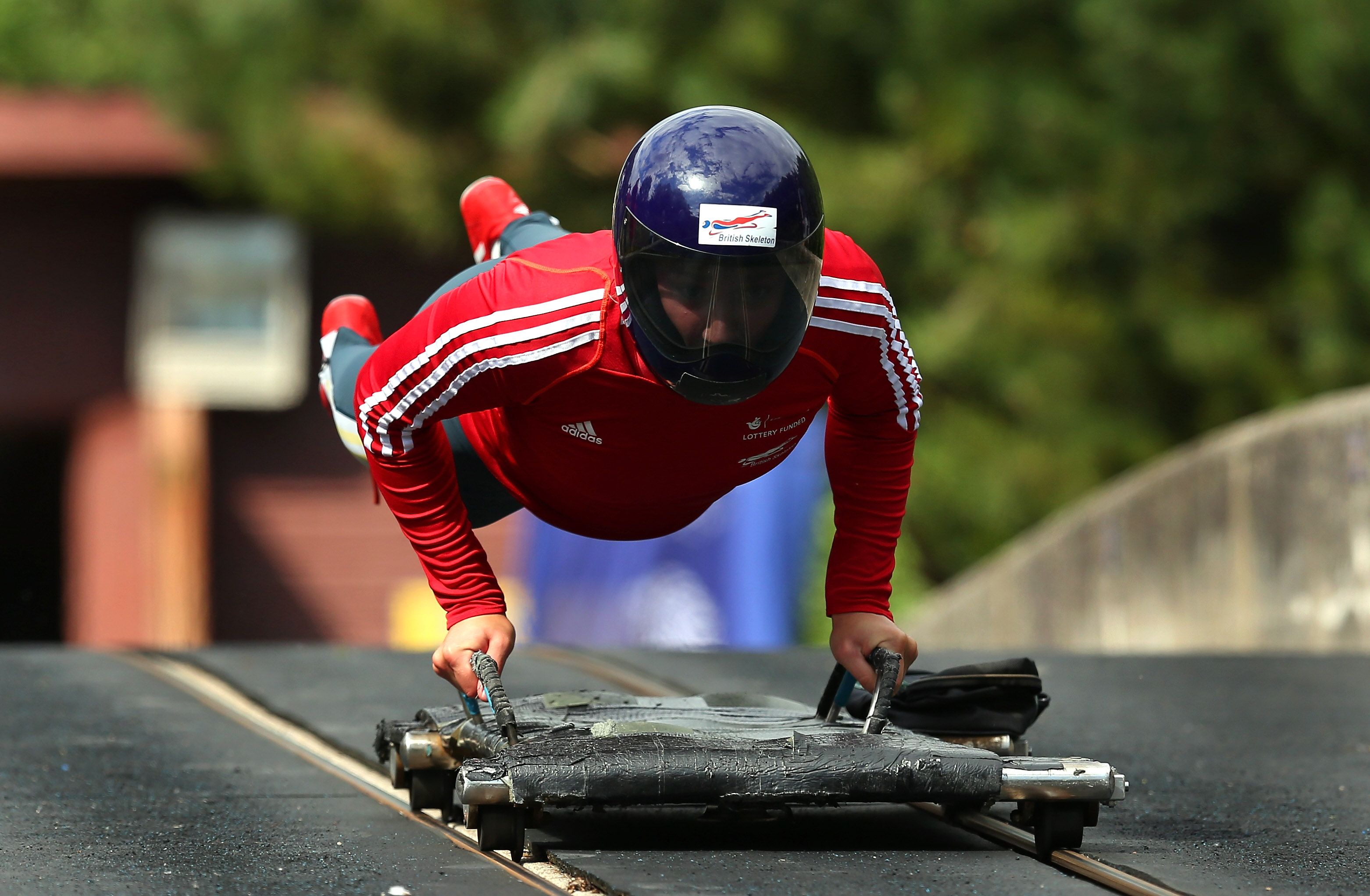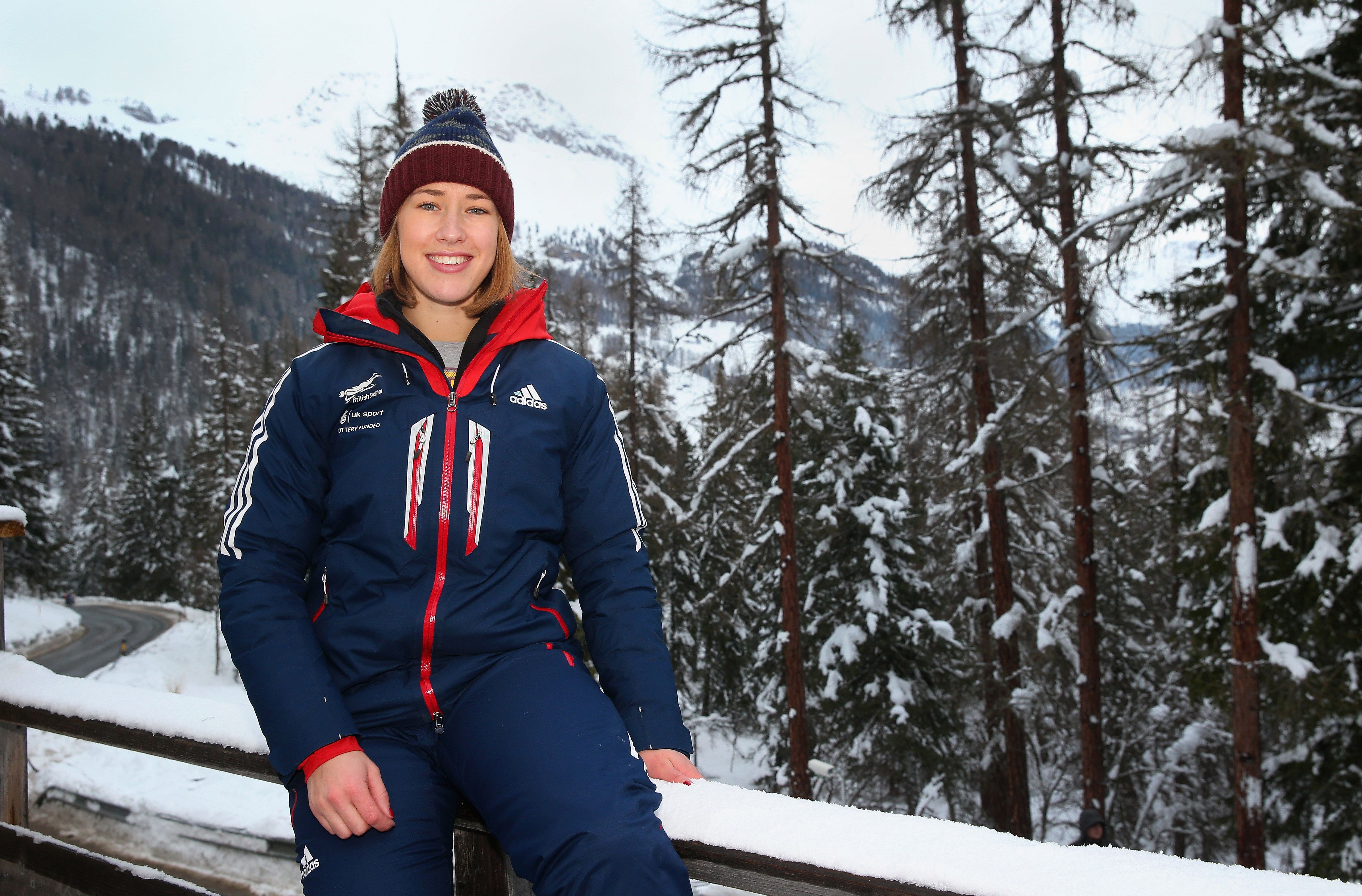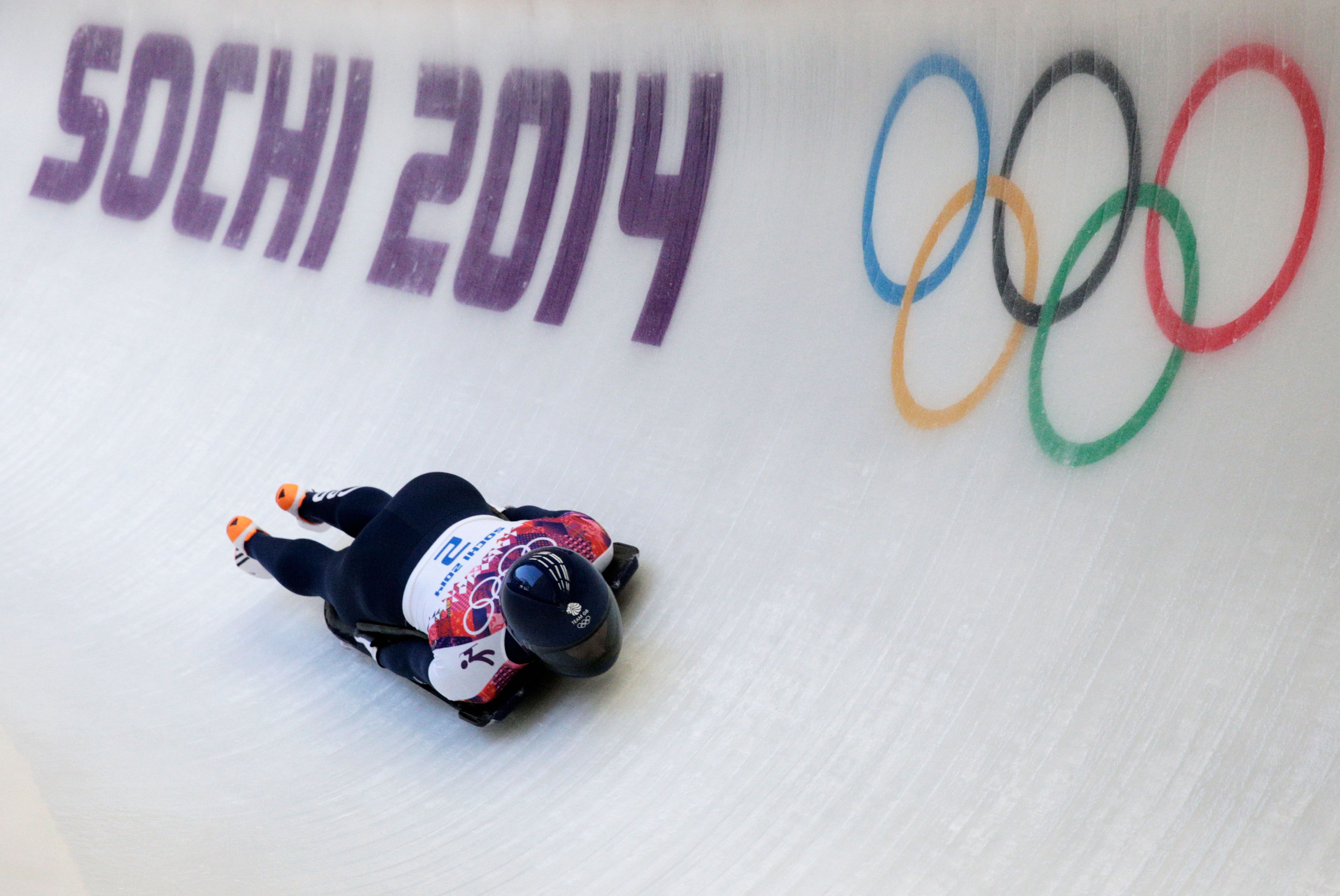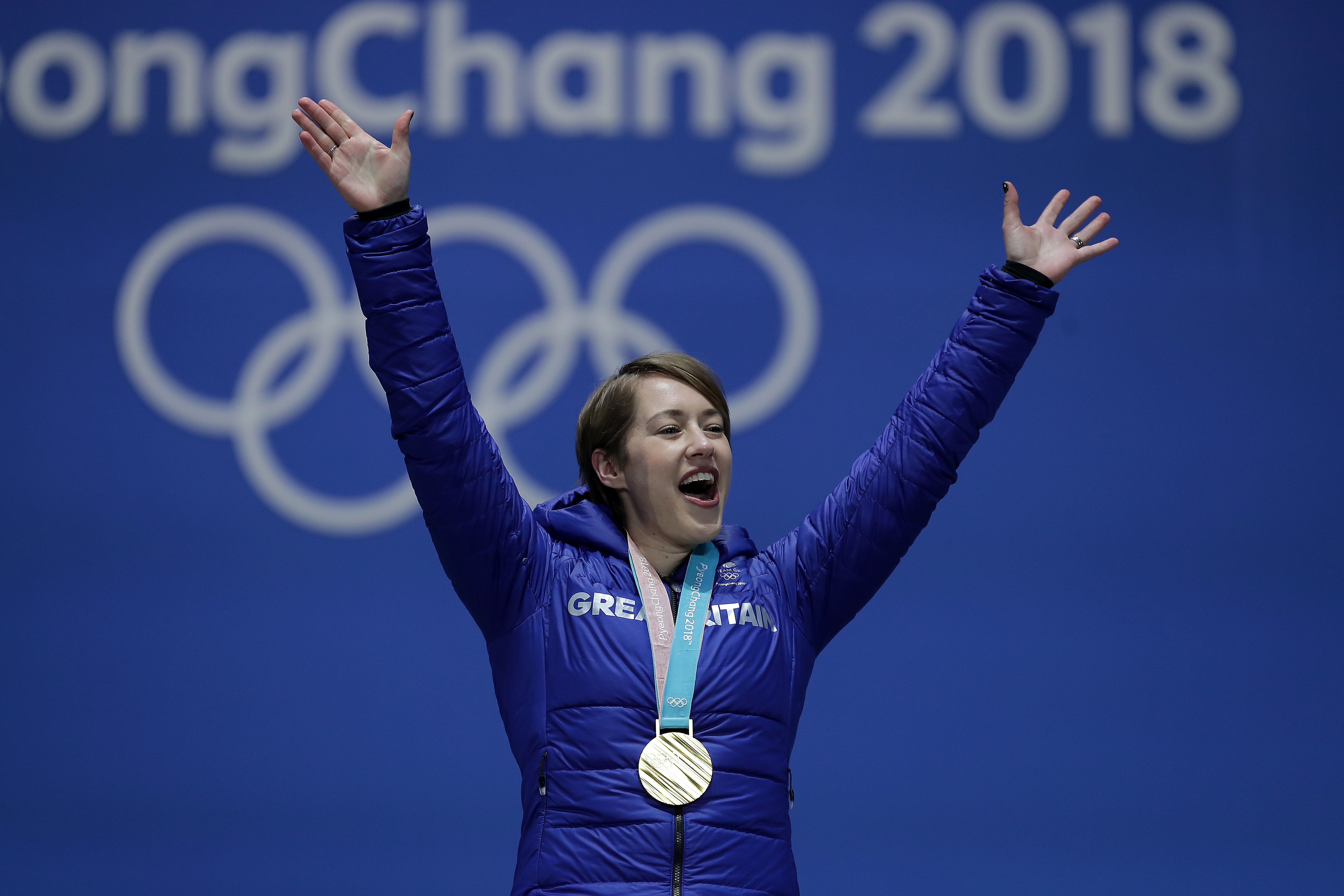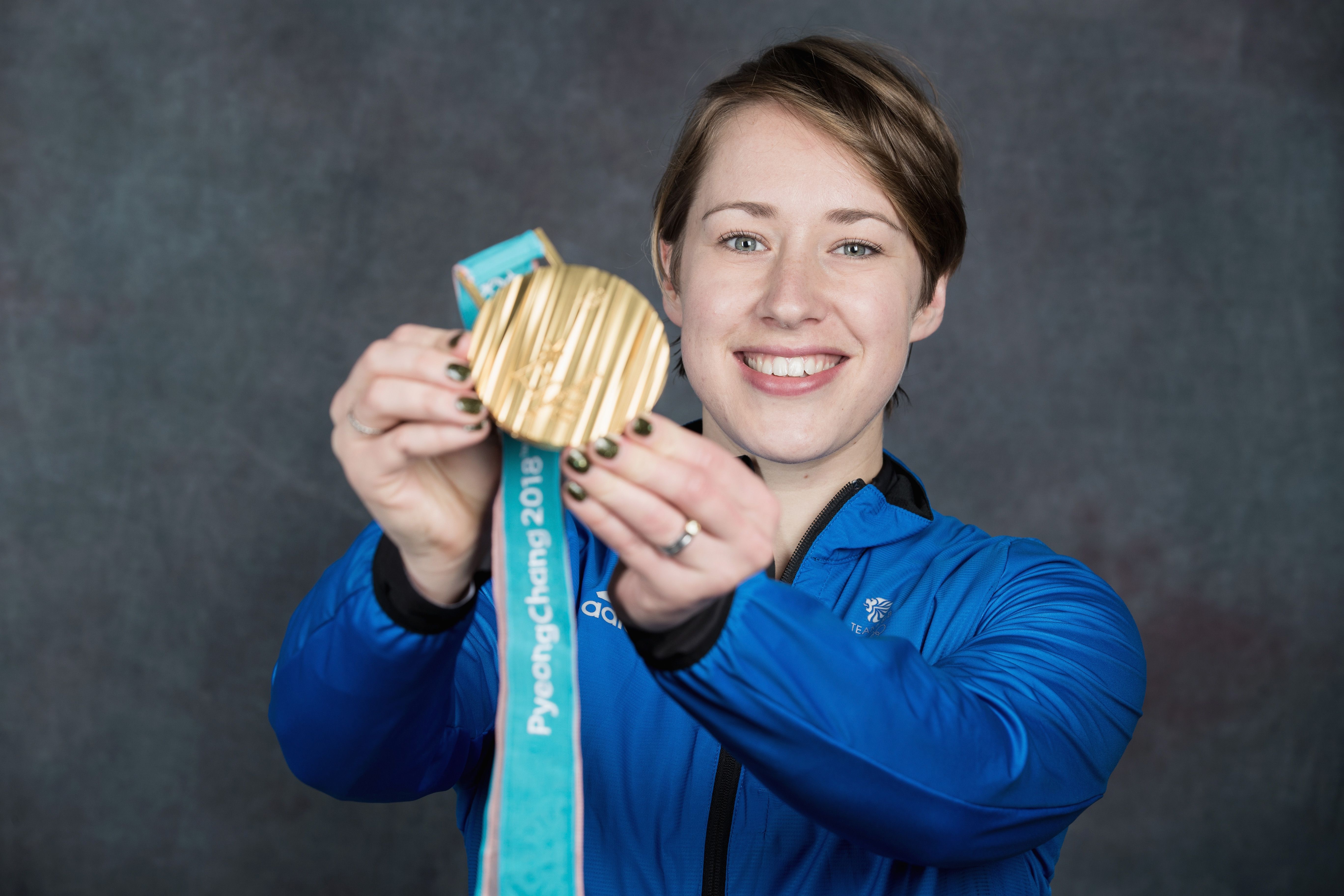Britain is not a country associated with winter sports. Whether it’s down to the lack of snow or ski resorts, British Winter Olympians are few and far between.
In total, 50 athletes have travelled to Beijing to represent Team GB in the next edition of the Games, which get underway tomorrow.
They will be looking to upset the odds and place on the podium, following in the footsteps of just 32 British athletes before them. There will be one star in particular who they will be hoping to emulate – Lizzy Yarnold, Britain’s most successful Winter Olympian.
After clinching a gold medal in the women’s skeleton at Sochi 2014, Yarnold became the first member of Team GB to successfully defend a Winter Olympic title, triumphing once again at PyeongChang 2018.
Yarnold didn’t just make British history, however. She is also the most successful Olympic skeleton athlete of all time from any nation.
How did a girl who grew up in the Home Counties become one of the best skeleton athletes in history? GiveMeSport Women details her journey.
LONDON, ENGLAND - FEBRUARY 26: Lizzy Yarnold of Great Britain talks to the media during a press conference at the Team GB Homecoming from the Winter Olympics at Heathrow Airport on February 26, 2018 in London, England. (Photo by Steve Bardens/Getty Images)
Inspired by Denise Lewis
Given she did not grow up near snow or ice, it is easy to understand why a young Yarnold did not harbour dreams of becoming Britain’s most successful Winter Olympian.
Instead, Yarnold had her eye on the Summer Olympics, becoming a heptathlete after watching Denise Lewis earn a gold medal at Sydney 2000.
Having shown an aptitude for sport, Yarnold took part in UK Sport's Girls4Gold talent search scheme in 2008.
She was among 900 athletes to attend the first testing phase, and after being considered for a range of sports, became just one of four athletes to join British Skeleton's national programme.
BATH, ENGLAND - AUGUST 09: Lizzy Yarnold of the GB Winter Olympic Skeleton Team practices during the Team GB Winter Olympic Media Summit at Bath University during the Team GB Winter Olympic Media Summit on August 9, 2013 in Bath, England. (Photo by Alex Livesey/Getty Images)
Making a name for herself
Yarnold began competing in 2010, winning her first official race in the Europa Cup at Igls in November. Over the next two years, the British star honed her skills, before winning the Junior World Championships in 2012.
This earned her a place at the senior World Championships in the same year. Yarnold finished third, securing her funding which allowed her to train and compete full-time.
Interestingly, Yarnold credited her success at the World Championships to her years competing in heptathlon as a youngster.
"It was my first four-run, two-day race and having done a lot of heptathlon in my teenage years, the mentality of rest and recovery, planning for the next day, suited me," she told The Times.
ST MORITZ, SWITZERLAND - JANUARY 10: Lizzy Yarnold of Great Britain poses for a portrait during the Viessmann FIBT Bob & Skeleton World Cup at the Olympia Bob Run on January 10, 2014 in St Moritz, Switzerland. (Photo by Alex Livesey/Getty Images)
Olympic glory
Full-time training had an immediate impact on Yarnold’s performances. After clinching her first World Cup title in February 2014, the Briton was competing at the Sochi Winter Olympics just days later.
Yarnold was the fastest competitor in each of the four runs, setting new track records on her first and third runs. The gold medal was hers – and only Britain’s 10th in 90 years of competing at the Winter Olympics.
Following her success at Sochi 2014, Yarnold became world and European champion. She then took a year-long break, however, citing burnout.
In 2017, Yarnold disclosed that she had been diagnosed with a vestibular disorder affecting the inner ear, and had subsequently been struggling with dizzy spells for several years.
SOCHI, RUSSIA - FEBRUARY 13: Lizzy Yarnold of Great Britain makes a run during the Women's Skeleton heats on Day 6 of the Sochi 2014 Winter Olympics at Sliding Center Sanki on February 13, 2014 in Sochi, Russia. (Photo by Adam Pretty/Getty Images)
After a difficult season, Yarnold arrived in Pyeongchang 2018 desperate to defend her Olympic title. Her health was not on her side – on arrival in South Korea, she developed a chest infection and had trouble speaking and breathing.
In addition, Yarnold experienced a flare-up of her vestibular condition on the first day of competition. She did not let this stop her, however, taking the lead with a new track record on the first run.
Yarnold dropped down to third place after her second run of the day, but her health improved for the second day of competition.
She subsequently moved up to second place after her third run, before setting another track record on her fourth run to retain her Olympic title.
Having come close to withdrawing from competition due to a number of health problems, Yarnold has often claimed her second Olympic gold medal is her greatest achievement.
PYEONGCHANG-GUN, SOUTH KOREA - FEBRUARY 18: Gold medalist Lizzy Yarnold of Great Britain celebrates during the medal ceremony for the Women's Skeleton on day nine of the PyeongChang 2018 Winter Olympic Games at Medal Plaza on February 18, 2018 in Pyeongchang-gun, South Korea. (Photo by Richard Heathcote/Getty Images)
Retirement
Just weeks after Pyeongchang 2018, Yarnold underwent knee surgery to remove a tumour in her knee, which had been discovered six months before the Games.
She was also diagnosed with a displaced disc in her spine, and subsequently underwent a successful operation on her back in July 2018.
Unsurprisingly, Yarnold announced her retirement from competition in October 2018. She still remains involved in sport, though, and has recently been re-elected to the British Olympic Association's Athlete Commission.
Yarnold acts a mentor to young athletes, and will also be providing insight and analysis for the BBC's coverage of Beijing 2022.
After such a successful career, secured by hard-work, perseverance and talent, winter sport fans will surely be hanging on to Yarnold's every word.
PYEONGCHANG-GUN, SOUTH KOREA - FEBRUARY 20: Lizzy Yarnold of Great Britain poses with her skeleton gold medal for a briefly portrait on day eleven of the PyeongChang 2018 Winter Olympic Games on February 20, 2018 in Gangneung, Pyeongchang, South Korea. (Photo by Andreas Rentz/Getty Images)



















